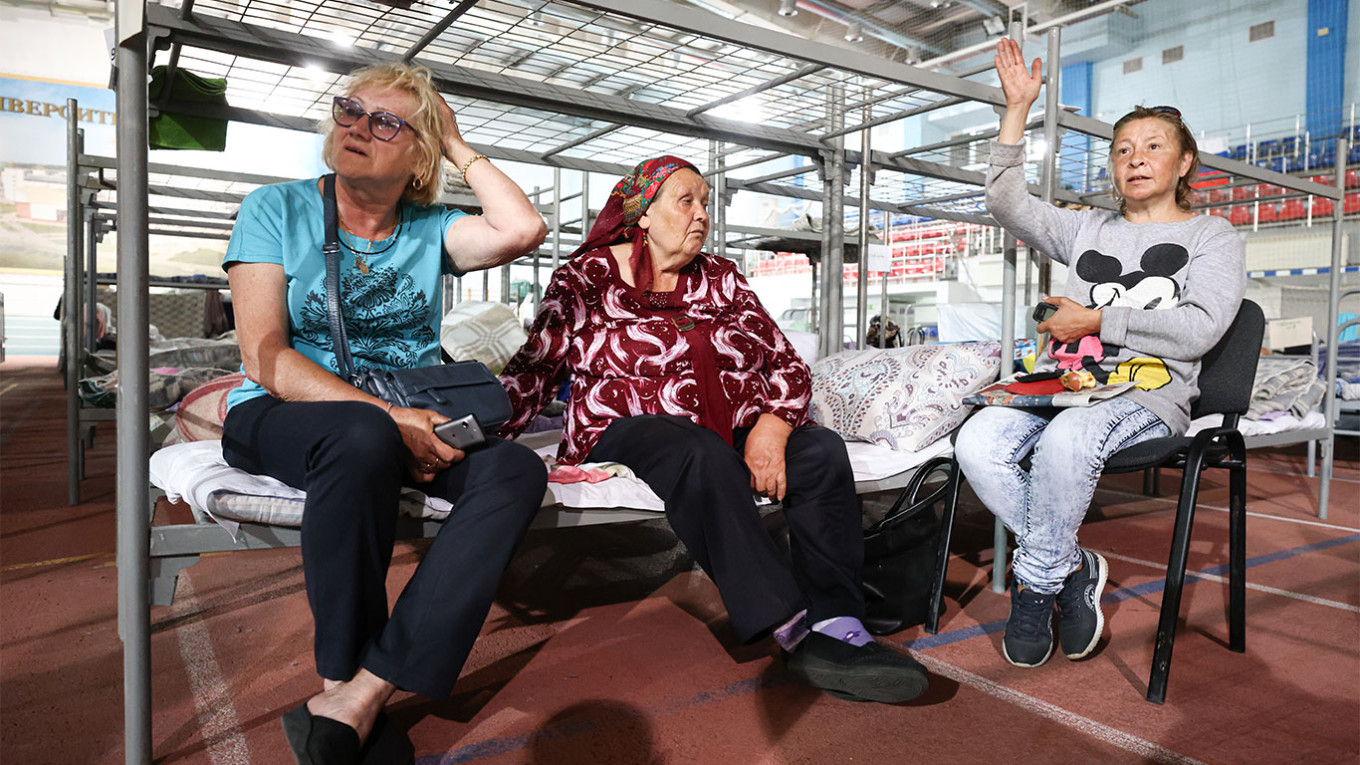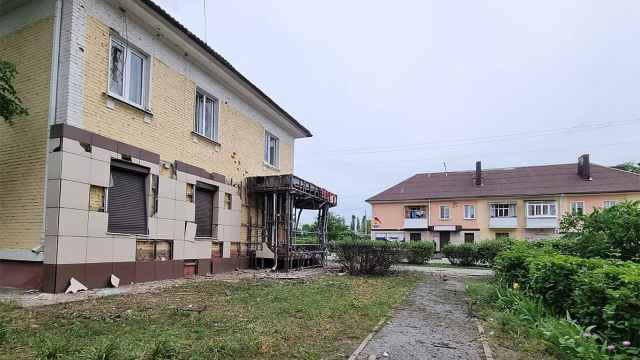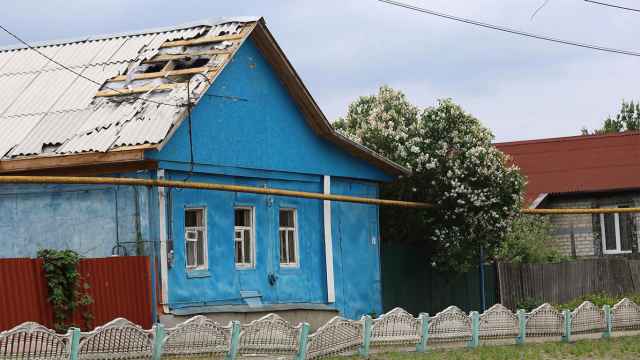In Russia’s Belgorod region, which borders Ukraine, 1,150 apartments in a single district were damaged last week in incursions and shelling. It might seem that the arrival of hostilities on Russian territory should prompt Russians to change their attitude toward the war, and boost demands for a ceasefire and peace negotiations. In reality, however, the effects may be far less linear, not least because of the history and political leanings of the border regions affected, which were known in the 1990s as the “red belt.”
Support for the “special military operation” is actually higher in regions close to the front, according to polls conducted by the Khroniki (Chronicles) project. In the Belgorod, Kursk, and Bryansk regions, all of which border Ukraine, support is noticeably higher than the national average of 60%: 69% in the Belgorod region, 77% in the Kursk region, and 66% in the Bryansk region.
The obvious explanation is the psychology of the civilian population during a conflict: to back the side that appears stronger and is nearby. In addition, the more victims of shelling, the stronger the previously absent feeling of hatred for the “enemy,” i.e., the Ukrainian Armed Forces.
In any case, panic and fear are not conducive to the awakening of people’s political consciousness, so there are few grounds to expect Belgorod residents to direct their feelings toward the federal government or Russian army. For the residents evacuated from Shebekino — the Belgorod district most badly impacted — who have lost their homes to bombs, it is much easier to continue to see the Ukrainian army as the enemy. For local people in these frontline areas, the Russian propaganda narrative of “otherwise they would have attacked first” looks entirely convincing.
There are outraged reports in Belgorod of officials soliciting payments from people during the evacuation process, and as the military situation worsens, these sources of anger will only increase. But for now, they are mere cracks in a strong foundation.
It may seem surprising that this foundation is so solid in regions that have always had strong historical, economic, and even family ties with neighboring Ukrainian regions. Since many people in Belgorod, Kursk, and Bryansk have friends and relatives on the other side of the border, it would be logical to assume that those connections should at least reduce the effectiveness of propaganda. But, paradoxically, proximity to the front only increases public support for the “special military operation.”
Russia began massing its troops on the border with Ukraine back in the spring of 2021, so even before the full-scale invasion of Ukraine on Feb. 24 last year, the presence of military personnel and equipment in all three border regions had become a familiar part of everyday life.
People there have gotten used to regular document checks and military aircraft flying over residential buildings. It is hardly surprising that in this atmosphere, a kind of “military self-censorship” has kicked in among locals — even in their thoughts. It is impossible to live in a constant state of anxiety for two years, so people start to justify the existing state of affairs.
It is also possible that the Federal Security Service (FSB) has been hard at work there — especially at large companies and among state employees — raising public awareness about “threats from across the border.” Even ten or fifteen years ago, these border regions were actively profiting from cross-border trade, and trips to neighboring countries were a common occurrence. With the deterioration of relations with Ukraine and Europe, the socioeconomic role of cross-border contacts has decreased, while that of the military and associated state sectors has increased.
According to an April poll by ExtremeScan, only 29% of respondents in Belgorod agree with a hypothetical withdrawal of troops from Ukraine, compared with 40% across Russia. On average, in the three regions, as many as 67% of respondents said they were helping the military in one way or another. That’s not surprising: 24% have family members who are or have been involved in the fighting.
Another important factor in the consolidation of public opinion is the influx of Ukrainian refugees. 37% of Belgorod residents and 25% each in the other two regions say they have helped Ukrainians fleeing the war. Ukrainians seeking refuge in Russia tend to be either a priori pro-Russia, or forced to hide their attitude toward the invasion and toe the official line of the Russian authorities, thereby seeming to confirm Russian propaganda to those living in the border regions.
Ultimately, however, the roots of support for the authorities lie in the values of conservatism. Belgorod, Bryansk, and Kursk are former “red belt” regions that were particularly unhappy with democratic and market reforms. In the 1996 presidential elections, Communist Party leader Gennady Zyuganov won a convincing majority in all three regions, taking around 60% of the vote in the runoff. In the parliamentary elections of 1999, the Communists took first place.
Since that was effectively a vote to return to the Soviet Union, it is not surprising that in the 2000s the “red belt” switched its loyalty to the Kremlin. By that time, the Russian government had successfully hijacked the Communist rhetoric about the “geopolitical catastrophe” of the Soviet collapse, the “wild 1990s,” and the country “getting up off of its knees.” The key points of this narrative were the confrontation with the West and the restoration of the Soviet Union’s imperial might. In the 2020s, the Communist “red belt” of the 1990s has turned into a support belt for Putin’s “special military operation.”
It’s hard to say whether this support will withstand the test of the forthcoming Ukrainian counteroffensive. If it is successful, then Russia’s border regions will most likely see both the consolidation of those who believe in seeing the war through to victory, and extreme anxiety, which may culminate in criticism of the military command — though not necessarily the civilian leadership.
The sustainability of the situation in the regions depends not so much on public opinion as on federal support and the effectiveness of local authorities. And while the Belgorod region may be the most vulnerable militarily, it also receives generous federal subsidies: enough to almost entirely compensate the region for a drastic drop in its budget caused by a 45% decrease in income tax revenue.
Meanwhile, Governor Vyacheslav Gladkov is considered one of the most effective technocrats to come up through First Deputy Chief of Staff Sergei Kiriyenko’s School of Governors training program. Since being appointed acting governor in 2020, he has demonstrated an aptitude for crisis management and has been swift to respond to residents. He also knows how to negotiate with different branches of the security forces.
In April, Gladkov’s approval rating was an extraordinary 89%, compared with 63% and 62% in the neighboring Kursk and Bryansk regions, respectively. The Belgorod governor has 400,000 followers on the Telegram app: among all the heads of Russian regions, only the outspoken Chechen leader Ramzan Kadyrov’s channel is more popular. Even heavyweights like Moscow Mayor Sergei Sobyanin are far behind Gladkov, with fewer than 100,000 subscribers.
Despite the growing military problems, therefore, the situation in the Belgorod region so far looks quite stable. Still, further escalation could create qualitatively new problems, especially infrastructural ones. If, for example, there is insufficient transport to evacuate all the residents of Shebekino, or a shortage of places in temporary accommodation centers, people’s indignation could start to impact whether they are really prepared to support their country’s war to the bitter end.
This article was originally published by The Carnegie Endowment for International Peace.
A Message from The Moscow Times:
Dear readers,
We are facing unprecedented challenges. Russia's Prosecutor General's Office has designated The Moscow Times as an "undesirable" organization, criminalizing our work and putting our staff at risk of prosecution. This follows our earlier unjust labeling as a "foreign agent."
These actions are direct attempts to silence independent journalism in Russia. The authorities claim our work "discredits the decisions of the Russian leadership." We see things differently: we strive to provide accurate, unbiased reporting on Russia.
We, the journalists of The Moscow Times, refuse to be silenced. But to continue our work, we need your help.
Your support, no matter how small, makes a world of difference. If you can, please support us monthly starting from just $2. It's quick to set up, and every contribution makes a significant impact.
By supporting The Moscow Times, you're defending open, independent journalism in the face of repression. Thank you for standing with us.
Remind me later.








